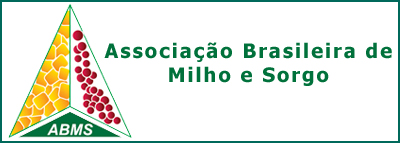ROCK PHOSPHATE SOLUBILIZING MICROORGANISMS ISOLATED FROM MAIZE RHIZOSPHERE SOIL
DOI:
https://doi.org/10.18512/1980-6477/rbms.v13n1p69-81Keywords:
Biosolubilization, Phosphorus, Zea maysAbstract
The selection of microorganisms capable of solubilizing phosphorus (P) from rock phosphates (RP) may contribute to reduce the dependence of imported fertilizers in grain crops, reducing the costs of agricultural production, and also the environmental impacts. This study tested 59 microorganisms (46 bacteria and 13 fungi) isolated from maize rhizosphere for solubilization of two RP, Araxá and Itafós phosphate in vitro (PA and PI, respectively). Among the 59 microorganisms solubilizing PA, 51% of the bacteria and 8% of fungi were classified as efficient. For PI, among 18 isolates, 50% of the bacteria and no fungi were efficient. There were significant differences in the availability of P among strains for both phosphates and most isolates evaluated for both types of rocks released more soluble P from PI than PA. Bacterial isolates CMSB58, CMSB32, CMSB20 and CMSB46 solubilized almost 20% of the P total in the PA and CMSB58, CMSB82, CMSB91 and CMSB48 solubilized more than 25% of the PI. The solubilizing activity of both phosphates was associated with a reduction of pH which suggests that the acidification of the culture medium can be one of the mechanisms involved in the solubilization of P. There was a dominance of the genera Burkholderia and Bacillus in the group of the most efficient bacteria and Talaromyces and Penicillium in the fungi group. The contribution of these strains to increasing the phosphorus nutrition of grain crops should be investigated further by in vivo experiments.
Downloads
Published
How to Cite
Issue
Section
License
Authors retain copyright and grant the journal right of first publication with the work simultaneously licensed under the Creative Commons Attribution License that allows the sharing of work and recognition of the work of authorship and initial publication in this journal.
Authors are able to take on additional contracts separately for non-exclusive distribution of the version of the paper published in this journal (eg, in an institutional repository or publish as a book), with acknowledgment of its initial publication in this journal.
Authors are permitted and encouraged to post their work online (eg, in institutional repositories or on their website) at any point before or during the editorial process, as this may leadto productive exchanges, as well as increase the impact and citation of published work.



